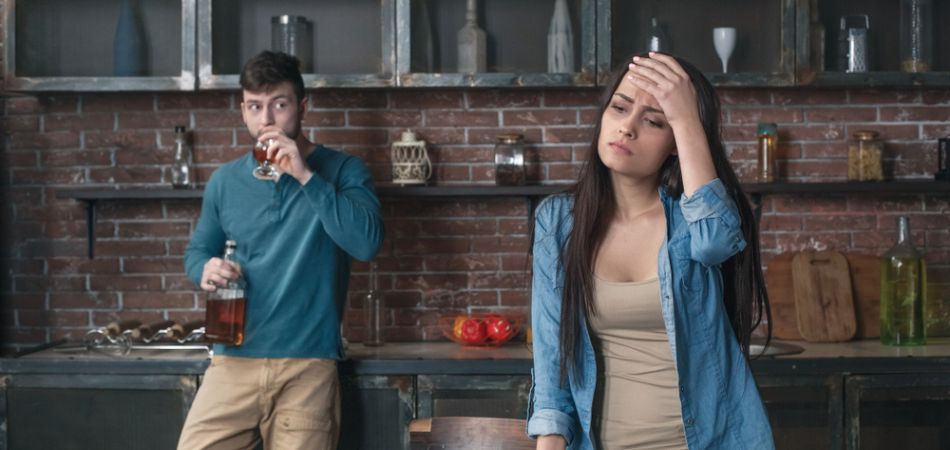Last Updated:
November 13th, 2025
Addictions have the tragic propensity to turn a once-solid family unit into a group of strangers. One member watches a sibling spiral into self-destruction, or a child watches a parent turn to drugs to escape deep and unrelenting distress.
The silence, the tension, the hope that tomorrow they’ll be okay; it all pulls at the fabric that holds a family together.
We’re here to support those families who refuse to give up. Together, we’ll take time to understand how addiction darkly flourishes in a damaged family unit, and how patience and the right support will help you rebuild trust, finding healing as a family again.
How many family homes are affected by addiction?
Across the country, millions of family homes are subject to the torment of drug and alcohol addiction.
Data from the Office for National Statistics estimates that over 600,000 adults are currently alcohol dependent, and at the very least, 1.5 million adults in the UK are “significantly affected” by a relative’s drug use. The numbers only begin to paint a picture of the strain placed on family relationships.
The intricate structure of family dynamics can make it feel like an addicted loved one is beyond help, but that is simply not the case. With the right kind of support network or therapy, families can first recognise the way addiction devastates the group, then take steps toward healing for every single family member.
How addiction takes hold of the family unit
The impact of addiction is never felt by just one. It seeps into the walls of a family home, dismantling the healthy ways you used to lean on each other and reshaping each person’s role.
How can my family cope and respond to addiction?
If a loved one’s addiction has started to dominate family life, it is completely natural to go through a constellation of emotions. You might feel yourself swing between denial, anger, fear, compassion and guilt, which can be overwhelming. Remember, coping as a family might not mean taking control and fixing the addicted person’s behaviour. Healing may take its first steps when you recognise and protect your own well-being. Then, you may become a stronger and steadier source of support.

Practical steps to support a loved one in recovery
If your loved one has taken their transformative step into addiction treatment, the family can work on reaffirming them with balance, structure and encouragement. Small, consistent actions will help complete recovery feel achievable:
- Learn about addiction as a medical condition: Using professional online resources to see how addiction functions like a disease can help give new perspectives.
- Build a wider network of support: Groups like Al-Anon or family therapy can help you share experiences and strengthen your own emotional resilience.
- Celebrate wins as a family: If it is comfortable for you, strive to celebrate milestones alongside your loved one as they go through treatment.
- Encourage professional help: Continued therapy and aftercare will help give your loved one structure and accountability when sustained sobriety becomes challenging.
The family’s role after addiction treatment
When a loved one completes their treatment, that does not necessarily mean their recovery has ended. They are entering a new chapter, and the family’s role may help keep their progress steady and reinforce positive long-term change.
-
Rebuilding trust takes time
Addiction is likely to leave deep emotional scars across the entire family unit. Rebuilding broken trust won’t happen quickly, but being consistent can sustain healing for all members. Make sure both sides are keeping promises and showing genuine effort so that relationships can gradually mend.
-
Ongoing therapy and aftercare together
There are aftercare and family therapy services available for any new challenges that arise throughout the recovery journey. Working together with your loved one can help open communication and strengthen mutual accountability. In recovery, growth and healing are offered as much for the family as for the person overcoming the addiction.
Where can I find family support for addiction?
Addictions echo across entire family units, but the right support at the right time can enable healing for everyone affected.
At Recovery Lighthouse, we specialise in evidence-based treatment for people struggling with substance and alcohol addiction, alongside specialist family support. Medical detox and family therapy can help your family rebuild trust as your loved one takes steps for a brighter tomorrow.
Our team is here to listen and guide you through addiction treatment. Reach out today, as the sooner your family gets the right support, the sooner recovery can start to bring peace back into your home.
(Click here to see works cited)
- “Estimates of Alcohol Dependent Adults in England: Summary.” GOV.UK, www.gov.uk/government/publications/alcohol-dependence-prevalence-in-england/estimates-of-alcohol-dependent-adults-in-england-summary
- Supporting the Supporters: Families of Drug Misusers, www.ukdpc.org.uk/wp-content/uploads/Policy report – Supporting the supporters_ families of drug misusers (policy briefing).pdf.
- Gowin JL, May AC, Wittmann M, Tapert SF, Paulus MP. Doubling down: increased risk-taking behavior following a loss by individuals with cocaine use disorder is associated with striatal and anterior cingulate dysfunction. Biol Psychiatry Cogn Neurosci Neuroimaging. 2017 Jan;2(1):94-103. doi: 10.1016/j.bpsc.2016.02.002. PMID: 28164168; PMCID: PMC5283863.
- “Adult Substance Misuse Treatment Statistics 2022 to 2023: Report.” GOV.UK, www.gov.uk/government/statistics/substance-misuse-treatment-for-adults-statistics-2022-to-2023/adult-substance-misuse-treatment-statistics-2022-to-2023-report
- “Understanding Drug Use and Addiction Drugfacts.” National Institutes of Health, U.S. Department of Health and Human Services, 30 Jan. 2025, nida.nih.gov/publications/drugfacts/understanding-drug-use-addiction.


